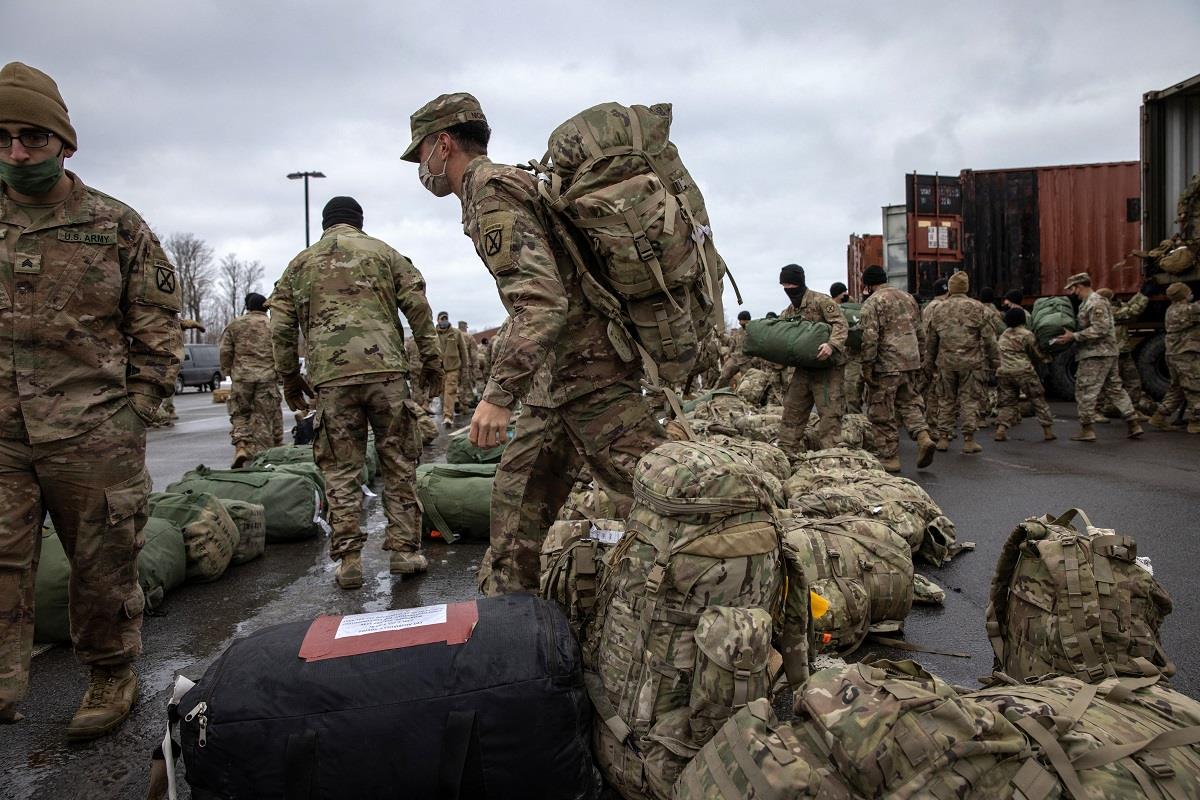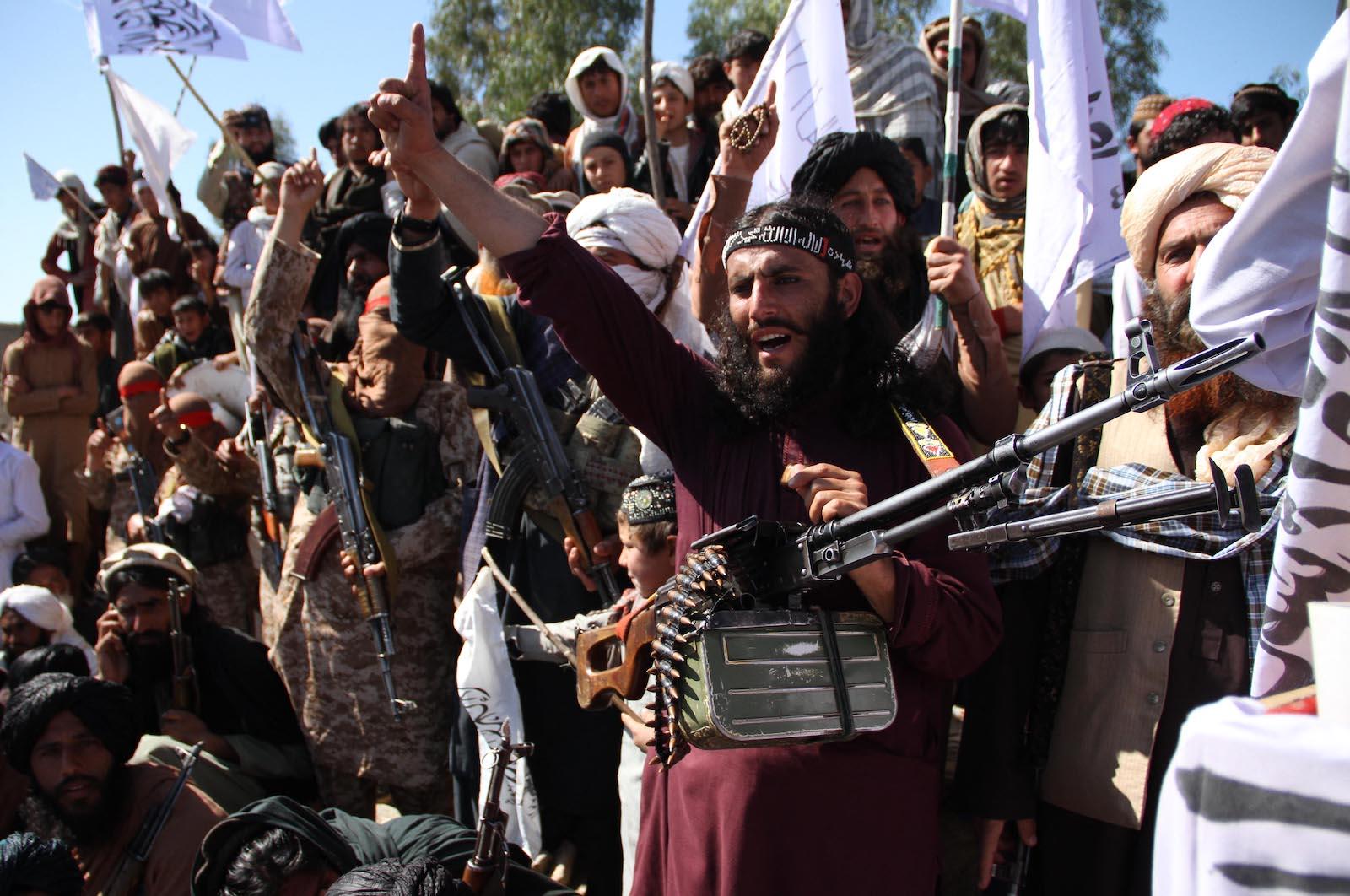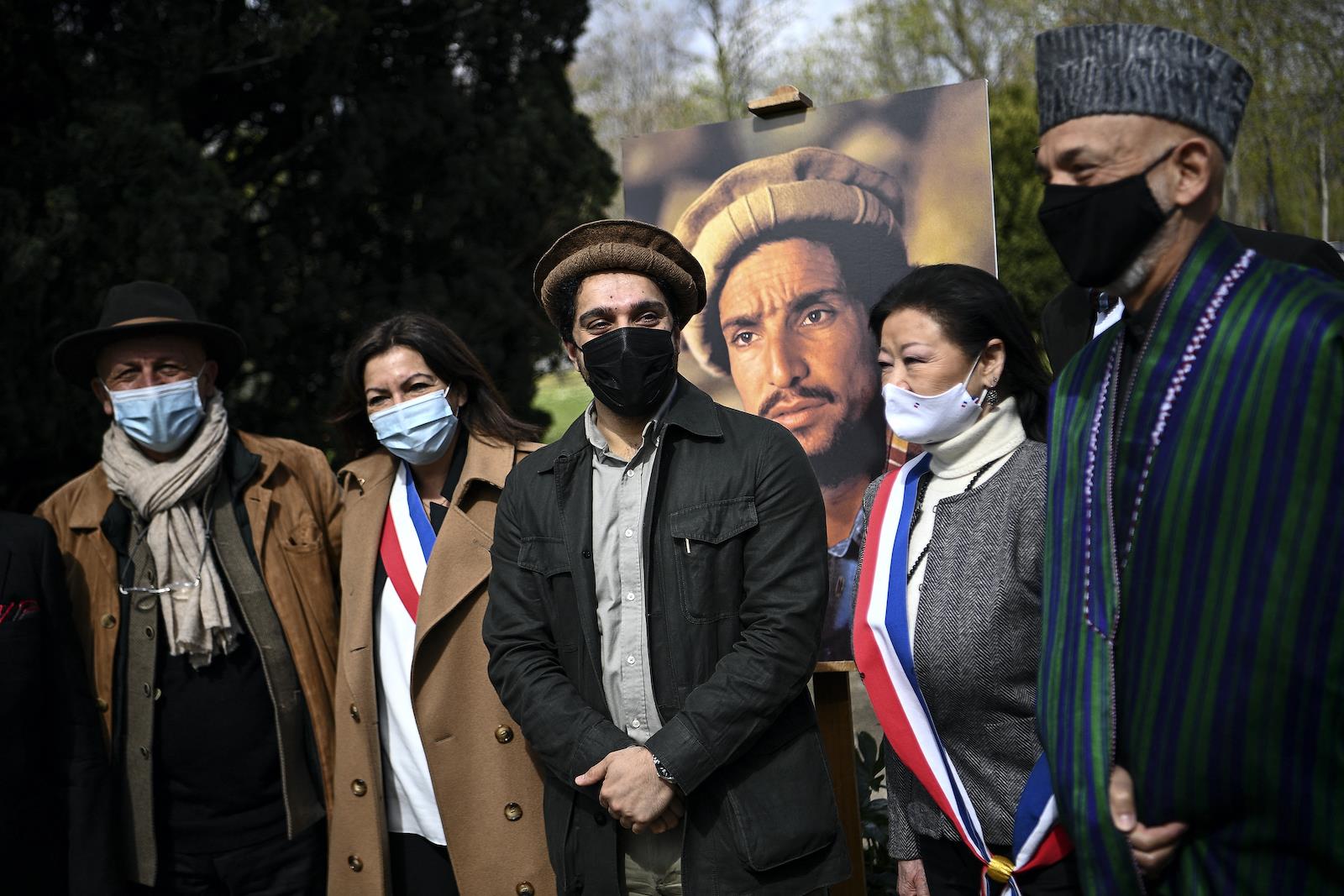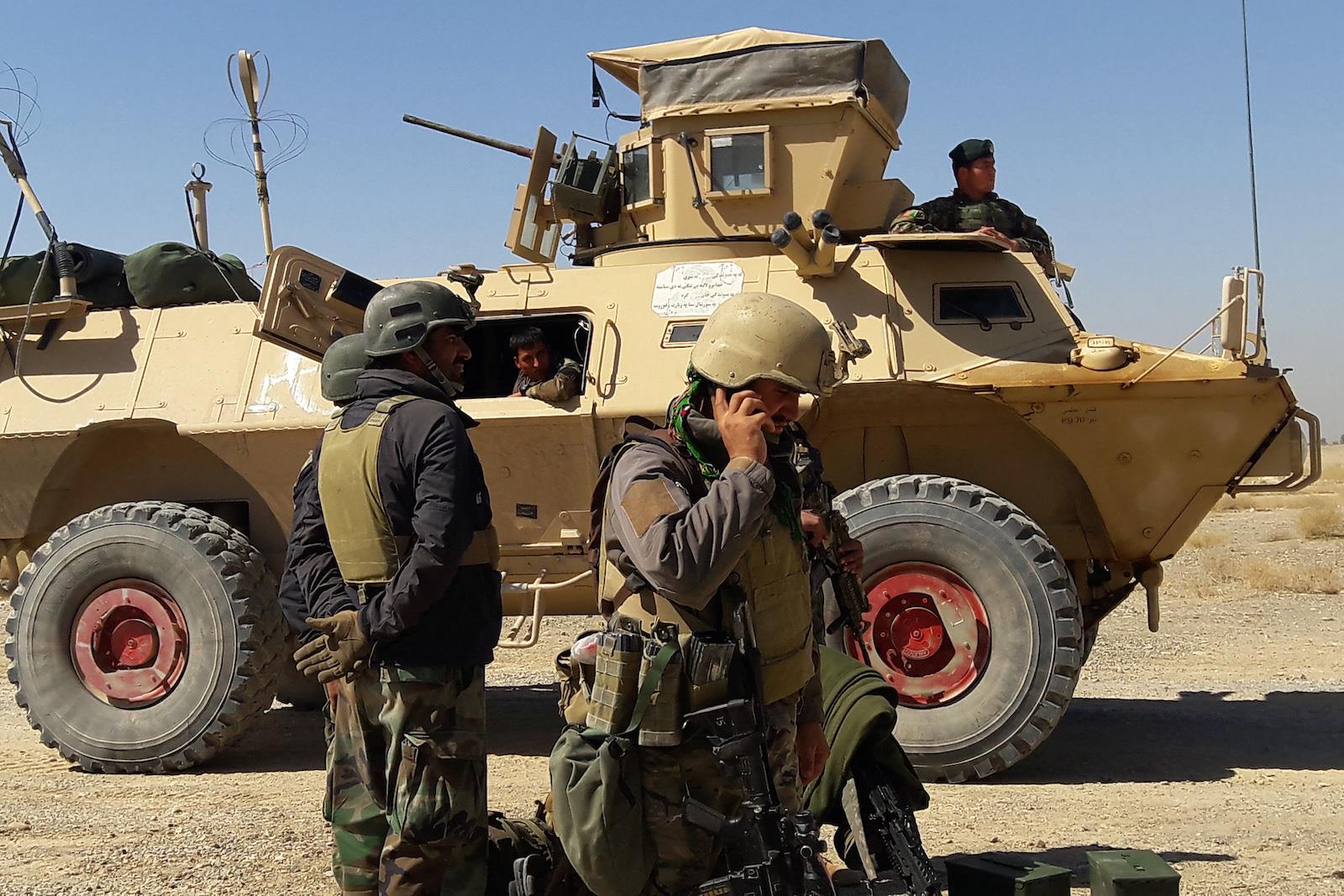
Post-US civil war drums beating fast in Afghanistan
(MENAFN- Asia Times) As US and NATO forces withdraw faster than previously planned from Afghanistan, violence is escalating in what could be a foretaste of a wider war to come.
Many believe the Taliban aims to exploit the vacuum left by the US-NATO troop withdrawal to seize control of the capital Kabul and re-establish an Islamic Emirate, similar to the one the US dislodged from power after its 2001 invasion.
In the first three days of June, at least 64 Afghan security personnel and 26 civilians were killed in Taliban attacks. The deadliest occurred in Nangarhar province on June 2, in which at least 40 security personnel were killed as several security outposts and a military base fell to Taliban fighters.
The Taliban's fast-expanding battlefield victories are one crucial reason why US and NATO military forces have perceptibly expedited their withdrawal plans. They apparently do not want to get trapped in an escalating civil war that is moving quickly from remote mountainous areas to cities.
Media reports indicate over half of America's forces have already left Afghanistan and that most of them will have withdrawn by July 4, well before an announced September 11 deadline.
NATO forces, too, are more focused on withdrawal than on their ''train, advise and assist'' mission. German Defense Ministry spokesman David Helmbold told reporters in May that all of their troops, estimated at over 1,000, will withdraw by the end of the first week of July.

American soldiers retrieve their duffel bags after they returned home from a nine-month deployment to Afghanistan on December 10, 2020, at Fort Drum, New York. Supposedly all US troops are to withdraw from Afghanistan by September 11, 2021. Photo: AFP / John Moore / Getty Images
Rapid withdrawal means that Afghanistan's national security forces can no longer rely on air and ground support from US and NATO forces as the Taliban intensifies its attacks on their positions. The Taliban has already declared ''victory'' over the US and looks set to overthrow by force President Ashraf Ghani's US-propped government in Kabul.
With US air, ground and intel cover the Taliban has a major new advantage which will almost certainly inspire the militant group to not only intensify their attacks, but also start battles to seize cities one-by-one leading to the eventual conquering of Kabul itself.
While Afghanistan's war is already brutal, as the Afghan War Casualty Report of June 2021 shows in bloody detail, it is now set to expand as the Taliban presses ahead and national forces struggle to maintain the areas and cities they control.
US policymakers saw this eventuality on the horizon when President Joe Biden announced the withdrawal of all US forces by September 11 this year, an extension of an earlier May deadline agreed to with the Taliban in February 2020 in Doha under the previous Trump administration.
The Annual Threat Assessment of the US Intelligence Community said in April 2021, ''prospects of a peace deal will remain low during the next year'' (2021-22), and that ''The Taliban is likely to make gains on the battlefield, and the Afghan government will struggle to hold the Taliban at bay.''
The US intelligence assessment further said that the ''Taliban is confident it can achieve military victory'' and that Afghan security forces ''remain tied down in defensive missions and have struggled to hold recaptured territory or re-establish a presence in areas abandoned in 2020.''
While the war is escalating and spreading as US-NATO forces withdraw, Afghan security forces will not be the only armed group fending off the Taliban's onslaught.

Afghan Taliban fighters and villagers attend a gathering as they celebrate the peace deal signed between US and Taliban in Laghman Province, Alingar district on March 2, 2020. Photo: Wali Sabawoon / NurPhoto via AFP
Non-Taliban militant groups, referring to themselves as ''mujahedin'' and professing an alliance with Kabul, started to re-group and re-position themselves for political and territorial gains soon after Biden's withdrawal announcement, marking a clear return to the territory-based warlordism seen in past eras of conflict in the country.
On April 18, Muhammad Ismail Khan, Afghanistan's former minister for water and energy and a leading politician in West Afghanistan, held a ceremony at his residence in Herat, which was broadcast live on Facebook and where several armed groups vowed to resist the Taliban.
Khan even went to the extent of offering Kabul to deploy mujahedin to fight the Taliban in cities and districts, saying:
''… there are hundreds of armed mujahedin in each district and the government [should] trust them. It isn''t necessary to send forces from the city of Herat to the districts who then suffer casualties. We have enough forces from the sons of this land in each district and they can defend their areas.''
Elsewhere in Takhar province, armed militias have re-emerged under the leadership of Ahmad Massoud, the son of late mujahedin commander Ahmad Shah Massoud, vowing to resist the Taliban post-US withdrawal.
With Massoud's political office claiming support from people in Takhar, Baghlan, Kunduz and Samangan provinces, the possibility of an ugly war involving not only Afghan security forces but also irregular armed militias has increased manifold.
In a rally organized in Kabul on May 8, Massoud said, ''if our nation is forced and the parties see that the solution in Afghanistan is a military solution, we will also get ready militarily among the mujahedin, with the advice of the mujahedin.''

Ahmad Massoud (C), son of late Afghan commander Ahmad Shah Massoud, former Afghan President Hamid Karzai (R), Paris Mayor Anne Hidalgo (2nd L) and Mayor of the 8th arrondissement of Paris Jeanne d''Hauteserre (2ndR), pose in front of a portrait by photographer Reza (L) of the late commander Massoud during a ceremony to unveil a commemorative plaque in his honor in an alley along the Champs-Elysees Avenue in Paris on March 27, 2021. Photo: AFP / Christophe Archambault / Pool
Atta Muhammad Nur, a former mujahedin commander known as ''The Teacher'' for the training he provided to Afghan mujahedin during the Soviet-Afghan war, has also said that his affiliated groups will resist the Taliban and stand by ''our system and government.''
While this is reminiscent of the way civil war broke out in Afghanistan in the 1990s after the USSR's withdrawal, a key difference in the current context is that these groups of mujahedin are being directly and actively encouraged by Kabul itself.
Ahmad Zia Saraj, head of the National Directorate of Security (NDS), reportedly said that discussions are underway with all the armed groups who are ''known as public uprising forces [and] who operate within the framework of the government'' to resist the Taliban in a bid to prevent it from establishing an orthodox ''Islamic Emirate'' and deny power to Afghanistan's legitimate political forces.
While Kabul's active encouragement of ''public uprising forces'' underscores the relative weakness of Afghan security forces vis-à-vis the Taliban, it also indicates that the next phase of the war will be fought as pitched urban battles in cities and districts rather than remote mountain regions, where both the Taliban and the ''people's forces'' consisting of armed mujahedin will be hard to distinguish from each other.
These battles will almost certainly force a vast number of civilians out of their homes and into neighboring countries like Pakistan, Iran and Tajikistan. In fact, the exodus has already started, with the UK government allowing more than 3,000 Afghans to settle in the UK, joining the 1,300 already living there.
As a BBC report mentioned , ''under new UK government policy, any current or former locally employed staff who are assessed to be under serious threat to life will be offered priority relocation to the UK.''
Pakistan, on the other hand, is already fortifying its thousands of kilometers-long border with Afghanistan in an effort to prevent a massive influx of Afghan civil war refugees into its territory.
Given the extremely volatile nature of Islamabad's relations with Kabul and the fact that the Afghan Taliban is known to be unhappy over the prospect of Pakistan rejoining a military alliance with the US, Islamabad will have only a marginal role in mediating between Afghanistan's various warring groups.

Afghan security forces stand near an armoured vehicle during ongoing fighting between Afghan security forces and Taliban fighters in the Busharan area on the outskirts of Lashkar Gah, the capital city of Helmand province May 5, 2021. Photo: AFP / Sifatullah Zahidi
For Russia and China, a wider civil war in Afghanistan could destabilize their Eurasian Economic Union and Belt and Road Initiative projects, respectively. That's because the influx of thousands of refugees into Central Asia means that various militant and jihadi groups could spread out and establish bases in their wake.
These include both the East Turkestan Islamic Movement, a militant Uighur group opposed to China's persecution of the ethnic minority group in Xinjiang, and ISIS, known as the IS-K in Afghanistan, a sworn enemy of Russia in other theaters. Al-Qaeda also lingers in the shadows.
As Russian President Vladimir Putin recently remarked, ''The peaceful development of Afghanistan is of key importance for security and stability in Central and South Asia. Russia will continue to assist in forming an independent, economically independent Afghan state, free from terrorism.''
But as US-NATO troops withdraw and local militant groups prepare for new armed conflict, it's just as likely that Afghanistan resumes its past role as a hotbed of Islamic militarism, terrorism and instability in Central Asia and beyond.

Legal Disclaimer:
MENAFN provides the
information “as is” without warranty of any kind. We do not accept
any responsibility or liability for the accuracy, content, images,
videos, licenses, completeness, legality, or reliability of the information
contained in this article. If you have any complaints or copyright
issues related to this article, kindly contact the provider above.

















Comments
No comment